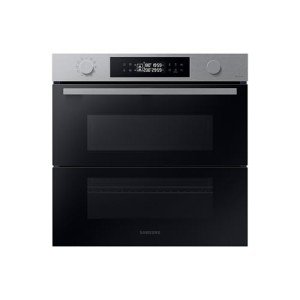Guide To Builtin Ovens: The Intermediate Guide In Builtin Ovens
ліёл¬ё
The Rise of Built-in Ovens: Enhancing Modern Kitchens
In the ever-evolving world of home improvement, built-in builtin Ovens have actually become a staple in contemporary kitchen design. These appliances not only use a streamlined and smooth aesthetic however also contribute considerably to the performance and performance of home cooking. This short article digs into the various aspects of built-in ovens, including their advantages, types, setup considerations, and upkeep, along with regularly asked concerns to provide a thorough introduction.
What is a Built-in Oven?
A built-in intergrated oven is an appliance created to be installed into kitchen cabinets, offering it a streamlined look and maximizing counter area. Unlike traditional freestanding ovens, which stand alone and are typically bulky, built-in ovens fit flush with kitchen cabinetry for a more integrated appearance. They are offered in different sizes, Builtin Ovens styles, and functions, dealing with a wide variety of culinary requirements and kitchen styles.

Benefits of Built-in Ovens
Built-in ovens included various benefits that make them appealing to homeowners. Below are some of the essential advantages:
- Space Efficiency: Built-in ovens save counter area while enhancing kitchen designs.
- Personalized Design: They can be electric integrated oven into kitchen cabinetry, enabling house owners to tailor aesthetic appeals according to individual taste.
- Boosted Performance: Many built-in ovens come equipped with advanced cooking innovations, enabling much better heat circulation and faster cooking times.
- Ease of access: Their setup at eye level makes it much easier to examine food without flexing down, providing higher benefit and safety.
- Resale Value: A modern-day, properly designed kitchen can enhance residential or commercial property value, making built-in ovens a financial investment worth considering.
Kinds Of Built-in Ovens
Built-in ovens can be classified based on their style and function. The following list describes the common types of built-in ovens offered on the marketplace:
- Single Ovens: A basic model that features one cooking compartment.
- Double Ovens: These featured 2 different compartments, which enable cooking numerous meals at different temperature levels.
- Wall Ovens: Installed into the wall for a space-saving solution, these ovens use convenience and accessibility and can be either single or double.
- Steam Ovens: These make use of steam for moist cooking and are often preferred for healthier meal preparation.
- Convection Ovens: Designed with a fan that circulates hot air, guaranteeing even cooking and browning.
| Type | Description | Perfect For |
|---|---|---|
| Single Oven | One cooking compartment for standard baking and roasting. | Little households and cooking areas. |
| Double Oven | Two compartments for synchronised cooking of different dishes. | Large families with diverse menus. |
| Wall Oven | Built into the wall for easy gain access to. | Space-conscious cooking areas. |
| Steam Oven | Cooks using steam for healthier options. | Health-conscious individuals. |
| Convection builtin oven | Distributes hot air for even cooking and faster outcomes. | Baking enthusiasts and chefs. |
Installation Considerations
Selecting to install a built-in oven includes several considerations to ensure that it fits effortlessly within the kitchen. Important factors include:
- Cabinet Dimensions: Accurate measurement of the cabinet space required for the oven is critical for an appropriate fit.
- Power Supply: Built-in ovens normally need a devoted power supply; speaking with a certified electrical expert might be required.
- Ventilation: Ensure that the oven's ventilation requirements are satisfied to promote safe operation.
- Regional Building Codes: Compliance with local codes is important when installing any kitchen device.
It's strongly recommended that installation be carried out by specialists to guarantee security and adherence to manufacturer specs.
Maintenance of Built-in Ovens
Maintaining built-in ovens is essential to guarantee their durability and operation. Below are some ideas for reliable upkeep:
- Regular Cleaning: Wipe down surface areas after each usage to prevent build-up; consider self-cleaning alternatives if available.
- Check Seals: Inspect the oven door seals frequently for builtin ovens wear and tear to keep effectiveness and avoid heat loss.
- Calibrate Temperature: Occasionally check and adjust oven temperature level settings if cooking results are inconsistent.
- Professional Servicing: Schedule regular upkeep with certified specialists for electrical parts and deeper cleansing.
Regularly Asked Questions (FAQs)
Q1: How do I select the ideal size built-in oven for my kitchen?
A1: Measure the available cabinet space and consider the cooking habits of your family. Single or double ovens are typical options based upon meal preparation requirements.
Q2: Are built-in ovens more energy-efficient than freestanding ones?
A2: Built-in ovens can be more energy-efficient due to better insulation and advanced cooking innovation; however, actual efficiency depends upon the specific model and usage.
Q3: Can built-in ovens be installed throughout the kitchen?
A3: built in range-in ovens require particular kitchen cabinetry and may need a devoted power source, so preparing their positioning thoroughly within the kitchen design is essential.
Q4: What kind of upkeep do built-in ovens require?
A4: Regular cleansing, inspecting door seals, calibrating temperatures, and professional maintenance as needed are all components of appropriate upkeep.
Built-in ovens are an exceptional addition to contemporary cooking areas, using both visual and useful benefits. Their space-saving style, customizable alternatives, and advanced functions deal with varied cooking needs. When considering a built-in oven integrated, homeowners must consider their specific cooking choices, kitchen design, and maintenance abilities. By doing so, they would be making a valuable investment in their home, increasing both functionality and style.

лҢ“кёҖлӘ©лЎқ0
лҢ“кёҖ нҸ¬мқёнҠё м•ҲлӮҙ